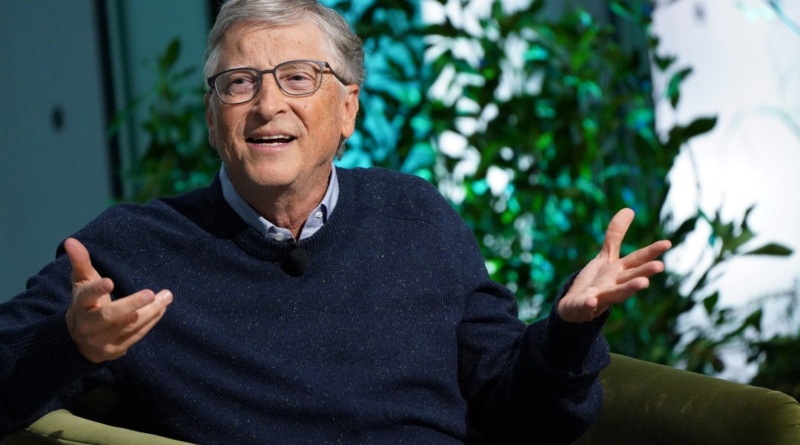If Bill Gates could ask a time traveler anything, he’d want to know whether AI doomed or helped humanity
If Bill Gates could ask someone who traveled to the year 2100 anything about the future, he wouldn’t enquire about the future of his bloodline or whether he managed to give away “virtually all” of his $124 billion fortune before his passing. Instead, the Microsoft founder would want to know whether AI eventually doomed or helped humanity.
Speaking on the most recent episode of his podcast, Unconfuse Me the billionaire philanthropist insisted that ultimately, all that matters is “human welfare”.
“It’s not like the end goal is less plastics or even a certain temperature,” he said. “It’s are humans thriving?”
Arguably, one of the biggest threats to humanity’s survival right now is artificial intelligence, with experts warning that it poses a “risk of extinction” on par with nuclear warfare.
AI’s “Godfather” turned-whistleblower, Geoffrey Hinton, compared the intelligence gap between us and these new large language models, with that of humans to a frog.
“The reason I’m not that optimistic is that I don’t know any examples of more intelligent things being controlled by less intelligent things,” he said.
Even the late physicist Stephen Hawking—who relied on AI to share his respected views with the world— warned that it could end mankind, years before ChatGPT came on the scene.
Naturally, Gates would want to “understand how the AI was either helping them come together… or how they dealt with that challenge.”
Having co-founded the nuclear energy startup TerraPower in 2006, Gates said he’d also be interested in learning how the world is generating energy.
“Is it fusion or fission or some unexpected thing?” he asked.
‘The report card isn’t the tactics. It’s the quality of life.’
Gates’ guest on the podcast also wanted to know how humans have coped with another potentially catastrophic crisis: Climate change.
Hannah Ritchie, a researcher at Oxford University’s Our World in Data and author of Not the End of the World would want to know exactly what percentage of the world is living on less than $20 a day.
“For me looking into the future, what I want to see is a world where everyone is living a comfortable life,” Ritchie said, adding that it would signal whether society has managed to tackle the environmental problems it faces.
She’s got a point: Scientists have warned that as carbon pollution heats the planet to ever more dangerous levels, it could “trigger devastating domino effects” if left unchecked including the loss of whole ecosystems, mass displacement and financial collapse.
Meanwhile, over 9% of the world’s 8 billion people currently survive on less than $2.15 per day, according to the World Bank.
So if most are living on $20 a day by 2100 it would indicate that world leaders had come together and solved the current crisis.
“My assumption would be that climate change hadn’t had extremely devastating impacts, where agriculture was ruined and health outcomes were really poor, and people were plunged into poverty,” Ritchie said.
“You’re right,” Gates agreed. “The report card isn’t the tactics. It’s the quality of life.”
Gates is ‘glass half-full’ on AI and climate change
Gates is famously optimistic, having previously described the personality trait as his superpower.
So it’s perhaps unsurprising that he’s hoping a time traveler can confirm whether humanity is still thriving long after he’s gone.
Plus, having become a grandfather last year, Gates has become more inspired than ever to consider the world his granddaughter will grow up in—and what he can do to help shape it for the better.
Since then, the seventh richest person on the planet has maintained that he is “glass half-full” when it comes to preventing the worst of climate change’s devastating impacts because there are already many “very promising” innovations out there—and AI will only speed up that progress, in his eyes.
He’s also brushed off fears that advancing technology will lead to mass unemployment and increased income inequality.
Instead, Gates has predicted AI will make the world a more equitable place, where “machines can make all the food” and we only have to work three days a week.



